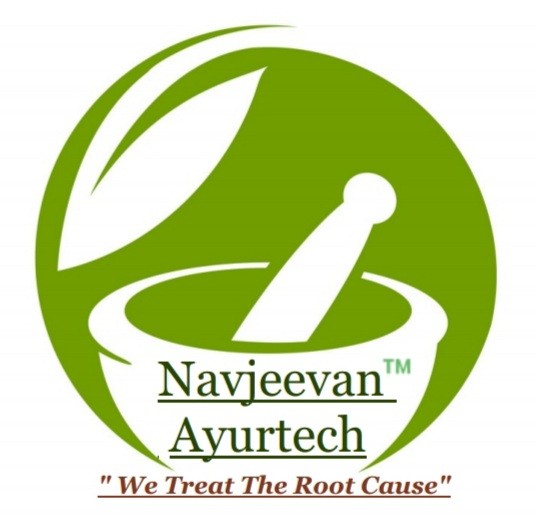Exploring alternative strategies to manage endometriosis can open avenues for relief and comfort. One such strategy is Ayurvedic treatment for Endometriosis. Ayurveda, a holistic healing system from India, emphasizes the harmony of mind and body. It helps improve the well-being of those dealing with endometriosis by focusing on this mind-body connection.
Ayurveda suggests that health and wellness depend on a balance of three body doshas: Vata, Pitta, and Kapha. These doshas, when out of balance, can lead to various health issues, including painful endometriosis symptoms. By restoring this balance, Ayurveda aims to relieve these symptoms naturally. In contrast to some modern treatments, Ayurveda offers a gentler approach. This blog will delve into how incorporating Ayurveda into daily routines can lend a natural hand in managing endometriosis symptoms.
The Ayurvedic Perspective: Understanding Endometriosis
Endometriosis is a condition where tissue resembling the lining inside the uterus grows outside it. This often results in pain and other symptoms. Scientifically, it is attributed to hormonal imbalances and requires intervention to manage its symptoms. Ayurvedic treatment for Endometriosis takes a distinct path.
In Ayurveda, endometriosis is often related to an imbalance of the Vata and Pitta doshas. This imbalance contributes to excess stress and inflammation in the body. Consequently, Ayurveda proposes natural methods to address these imbalances. Endometriosis treatment with Ayurveda helps in managing the chronic nature of the condition by focusing on reducing stress and inflammation.
To manage endometriosis, Ayurveda recommends the use of certain healing plants and herbs. Ayurvedic herbs for endometriosis, such as Ashwagandha and Shatavari, play a significant role. These herbs are known for their anti-inflammatory properties and help in balancing hormones naturally. By incorporating these into one’s routine, individuals may experience reduced pain intensity and better symptom management.
Ayurveda addresses more than just the physical symptoms. It encourages a holistic lifestyle change, which can enhance the overall quality of life. While modern medicine often focuses solely on physical treatment, Ayurveda promotes overall wellness, which can effectively help manage severe symptoms of endometriosis naturally.
Holistic Management Strategies in Ayurveda
Managing endometriosis symptoms holistically can mean adopting several non-invasive tactics from Ayurveda. One notable mention here is Panchakarma. This detoxifying routine can alleviate symptoms by cleaning the body of impurities. Ayurvedic pain relief for endometriosis from practices like Panchakarma focuses on restoring balance, which helps reduce symptoms.
Yoga and meditation form integral parts of Ayurvedic healing. They encourage relaxation and reduce stress, both of which are crucial in managing endometriosis. Simple yoga routines combined with meditation can improve mood and help manage pain. The practice of these exercises under guidance can lead to significant relief over time.
The Ayurvedic diet for endometriosis also holds importance. Ayurveda prescribes eating foods that promote hormonal balance. A few suggested foods include fresh fruits, vegetables, whole grains, and easily digestible proteins. Avoiding processed foods and caffeine as much as possible is also advised.
Here’s a list of dietary pointers to consider:
- Eat fresh: Prioritize seasonal fruits and veggies. They’re packed with nutrients and are easily digestible.
- Stay hydrated: Drink enough water throughout the day to maintain hydration and support bodily functions.
- Limit caffeine: Minimize intake of tea, coffee, and carbonated drinks, which can aggravate symptoms.
- Include herbs: Add beneficial herbs like Ashwagandha and turmeric to your meals for their anti-inflammatory benefits.
One of the top advantages of Ayurveda is its focus on long-term health. Compared to conventional treatments, which often address symptoms temporarily, Ayurvedic endometriosis management aims to develop enduring wellness. Thus, individuals may experience sustainable healing with fewer side effects.
Transformative Routines: Lifestyle and Dietary Adjustments
Adopting dedicated lifestyle changes and sticking to dietary strategies can significantly support endometriosis management. Ayurvedic diet for endometriosis recommends including high-fiber foods while reducing caffeine and processed food intake. Oats, brown rice, and leafy greens can be staples in this diet.
Incorporating stress management techniques is equally important. Practices like deep breathing and light stretches can alleviate stress and help manage anxiety. These methods ensure emotional health and, importantly, ease some physical symptoms.
Regular exercise should also not be overlooked. Simple activities like walking or gentle yoga routines can work wonders for the mind and body. This keeps the body active and healthy, mitigating pain and discomfort from endometriosis.
In conclusion, balancing Ayurveda with personal care and self-awareness can pave the way for effective symptom relief. Not only does Ayurveda provide a holistic approach to endometriosis, it complements personal care methods for a balanced life. The potential long term benefits of Ayurvedic treatment for Endometriosis include improved wellness and reduced reliance on medication, offering a natural path to relief.

